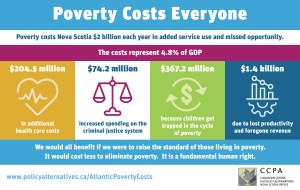During a Chamber of Commerce state-of-the-province event last week, our new premier postured back at the chamber’s posturing about his government’s budget. But should we have faith he means what he says?

Gavin MacDonald’s introduction was full of the expected whinging and woe-is-us, and — of course, as always — it arrived with its own neatly wrapped Santa’s wish list for the good girls and boys gathered last week in an appropriately socially distanced convention centre meeting room.

MacDonald, a corporate lawyer who is also chair of the board of the Halifax Chamber of Commerce, had the task of introducing Premier Iain Rankin for his first appearance eat the annual chamber-sponsored state-of-the-province speech. It is perhaps notable that MacDonald’s six-minute introduction lasted a third as long as the premier’s entire speech.
“We ask the government to provide Nova Scotians” — by which MacDonald meant private businesses like those represented in the room — “with a concrete set of actions for the economic recovery that includes support for businesses, reimagining policy, community-based support and a plan for economic growth.”
MacDonald had some suggestions for spending. Tourism Nova Scotia’s budget should be increased by $10 million, for example, to “provide support for the tourism and hospitality operators for the next year.” And he had some complaints about how the government intended to spend. “Having a budget that invests another $771 million on non-economic measures is not putting the focus on economic recovery that is needed or has been promised,” he declared.
Uh…let’s unpack that.
That $771 million is for increased departmental spending allocated to health and wellness, community services and education and early childhood development. Within that envelope, the budget includes major spending increases for “long-term care, home care, mental health and addictions services, and income assistance rates.”
Does business not benefit from a healthier citizenry, particularly in these pandemic times? Does business not have some obligation for the health and education of its workforce, its customers its community?
It’s worth noting that the day after the chamber’s annual state-of-the-business-community whine, the Centre for Policy Alternatives released a report entitled The Cost of Poverty in the Atlantic Provinces, which pegged “the shared economic burden of poverty, and the high cost of inaction to eradicate poverty” at $2 billion per year in Nova Scotia alone.

Christine Saulnier, the provincial director of the CCPA, told the Examiner’s Yvette D’Entremont the report offers a “business case” for ending poverty. “If we lifted everyone who is currently living in poverty out of poverty, what would be the gains? And in order to understand what the gains are, we look at what the costs are. In other words, this is a price tag on inaction.” Though the methodology may be complex, “we can actually account for the economic costs of holding members of our community back. And those costs are significant. Two billion dollars a year? That’s significant.”
That $2 billion also represents 4.8 per cent of the province’s gross domestic product for anyone keeping score.
Alec Stratford, Chair of the Nova Scotia Action Coalition for Community Well-Being, who was probably not invited to last week’s chamber speech, could have put those lost-opportunity costs in stark perspective.
It is fiscally reckless and immoral of the current government in Nova Scotia to allow poverty to fester. The impact of poverty on our collective health, wellness and quality of life is overwhelming and extensively documented. We must embrace systems, that more effectively share wealth, and that provide programs and services to allow folks to heal from intergenerational trauma and poverty.
That, of course, wasn’t the snake oil message the chamber was selling. Its simplistic two-note mantra was, is, and probably always will be: Support business by cutting our taxes while slashing government spending for anything that doesn’t help us directly.
The reality is that one reason we’re in the fiscal mess we are is because of the success of lobby groups like the chamber of commerce who’ve waged a successful decades-long campaign to eviscerate the corporate tax rate while looking the other way while billions in corporate profits found tax-free offshore shelter.
The chamber’s message has continued to be the same to all three levels of government. In February, for example, the Chamber officially asked Halifax city council to freeze commercial property tax for the 2021-22 budget while taking a shot at “planned wage and pension increases” for city employees. The city’s proposed 1.9 percent increase to the average tax bill, the chamber complained, would be unfair to small businesses that have struggled during the pandemic.
The chamber’s brief didn’t account for the stark reality that if the city made “zero changes the cost of the average tax bill, the city will lose $10.8 million in revenue.” Which leaves cutting services as the only option to find the necessary savings.
Which seems to be just fine with the chamber.
The good news — maybe — is that Premier Rankin postured back, at least a little, on the chamber’s posturing. He defended his government’s spending. “What this budget does contain are increases to modernized health care, increases to education to support inclusion and historic investments to help the most vulnerable in Nova Scotia… We don’t have endless amounts of money,” he explained, adding as a sop that the budget included no new taxes or increased fees. “We’re at a half-a-billion-dollar deficit right now. We have to recognize that every dollar we’re spending is debt.”
The question is, can we trust Rankin? It may be significant that he also used the chamber speech to announce the creation of a new 10-member economic growth council chaired by former federal Liberal cabinet minister Scott Brison to “position the province for economic success and grow the economy as Nova Scotia emerges from the pandemic.”
That should be good for some pre-election deflection.
In the legislature last week, Rankin tried to deflect from what NDP leader Gary Burrill called Rankin’s “Judy Garland Somewhere Over the Rainbow economics.” The premier had promised to balance the province’s “COVID-ravaged” books in just four years. How? Well…
As the COVID spending ramps down, we are going to continue to look at a program review, which I call a review that looks at every line item in every department. If it’s not delivering better quality of life for Nova Scotians, that would be under review… We haven’t had a program review in eight years, it’s time to look at everything government does.”
Translation. Prepare for dramatic post-election spending cuts if the Liberals do win. Rankin’s old-new Liberal government will campaign in the upcoming election on its progressive this-year budget priorities.
If elected, however, it will quickly pivot, announcing, with suitable surprise, it has “discovered” the cupboards are bare and the only answer is to cut spending even more for even longer.
What makes me think that? Political history. Remember the results of the Dexter NDP government’s post-victory lap outside review of the province’s finances in 2009?
Or, perhaps, more recent history — so recent it isn’t even history yet. On Mar. 9, the newly minted “Rankin government” introduced what was supposed to be its signature biodiversity act. Less than two weeks later — following a no-lie-too-big lobbying campaign concocted by a non-existent “Concerned Private Landowners Coalition” funded by the Nova Scotia forest industry — Rankin, our environmental premier, cried uncle and gutted the act to suit the industry.
I rest my case.
A version of this column originally appeared in the Halifax Examiner.
To read the latest column, please subscribe.







 STEPHEN KIMBER, a Professor of Journalism at the University of King's College in Halifax and co-founder of its MFA in Creative Nonfiction Program, is an award-winning writer, editor and broadcaster. He is the author of two novels and eight non-fiction books. Buy his books
STEPHEN KIMBER, a Professor of Journalism at the University of King's College in Halifax and co-founder of its MFA in Creative Nonfiction Program, is an award-winning writer, editor and broadcaster. He is the author of two novels and eight non-fiction books. Buy his books